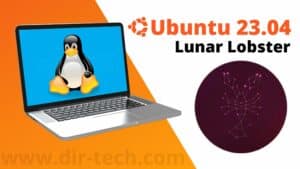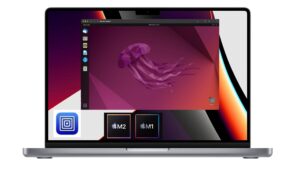In this Linux System Administration course, we will see step by step the essentials to become a Linux administrator. Let’s start by knowing what Linux is. Why use Linux? And some Linux OS distributions.
Qu’est-ce que Linux ?
Linux an operating system (OS) that runs on a computer hardware or system. It is like Windows OS (for example Windows 8, 10, 11).
An operating system, on the other hand, is software that allows you to install and run other programs such as VLC, MS Office, Google Chrome, etc.
For example, your smartphone, tablet, computer, etc., all need an operating system to run the software you use.
This means that Linux is not only limited to computers, it can run any device running software.
It should be noted that Linux, also called GNU/Linux is a family of open source Unix-like OS based on the Linux kernel, created in 1991 by Linus Torvalds.
Open source license of Linux
The Linux OS is also distributed under an open source license, which means that the source codes are available to everyone.
So open source means:
- Freedom to run the program, and for any purpose.
- Freedom to study how the program works and modify it to do what you want.
- Freedom to redistribute copies so you can help your neighbor and others.
- The freedom to distribute copies of your modified versions to others.
Why use Linux?
You are probably asking yourself why use Linux? So, there are several reasons that can convince you to use the Linux OS.
The first reason is that Linux is from an open source family, so you won’t have to pay for a license.
Since Linux is free and open source, it is used almost everywhere in companies!
It is used on desktops and laptops, web servers, smartphones, public cloud technology (Google, Amazon, etc.), and even network interconnection (Cisco networks for example).
Moreover, it should be noted that servers running under Linux generate more than half of the Web pages on the Internet. That is, the majority of websites and web applications run on Linux servers.
So you can see that it is really worthwhile to learn Linux.
Who can use Linux?
You may have already heard of Linux! And you think that only computer experts use it for programming or maybe even for hacking!
Well you may be a little bit right, although it is true that many technicians use Linux, it does not mean that Linux is difficult to learn.
I reassure you that Linux is not that complicated, so anyone can use it. All you need is a little courage and motivation.
If you dream of working in large companies, it is therefore important to learn the basics of Linux. Because the majority of large companies use Linux as their OS.
Linux distributions
There are a number of different versions of Linux distributions to suit any type of user.
Most Linux distributions can be downloaded free of charge, burned to a disk or USB key and then installed on a machine.
The most popular Linux distributions are :
- Ubuntu ;
- Linux Mint ;
- Debian ;
- OpenSUSE ;
- Fedora ;
- CentOS
- Etc.
Each distribution has a different graphical interface. Some opt for very modern user interfaces while others stick to a standard, more traditional desktop environment.
Most of these distributions exist in two versions:
- A desktop version with a graphical interface;
- And a server version without graphical interface.
Some of the above server distributions are free. Examples include:
- Ubuntu Server;
- CentOS Server
And some have an associated price, for example:
- Red Hat Enterprise Linux
- SUSE Enterprise Linux.
Those with an associated price also include assistance support.
For more distributions, Click here.
Which distribution to choose?
The distribution you choose will depend on the answer to these three simple questions:
- How qualified are you as a computer user?
- Do you prefer a modern or standard desktop interface?
- Which OS version, Server or Desktop?
If you are a beginner, you can stick to a beginner-friendly distribution such as Linux Mint or Ubuntu.
However, if you have superior skills, you can opt for a distribution like Debian (Kali Linux) or Fedora.
And if you know something about computer and network administration, then you can start with any distribution depending on your needs.
To go further, if you want to take a challenge, you can create your own Linux distribution thanks to the source codes available for you.
In this course, we will start from scratch, so Ubuntu is ideal to begin with. We will use Ubuntu Desktop and Ubuntu server for the demonstrations throughout this course.
Indeed, if you are looking for a server-only distribution, Ubuntu Server or CentOS server can help you.



